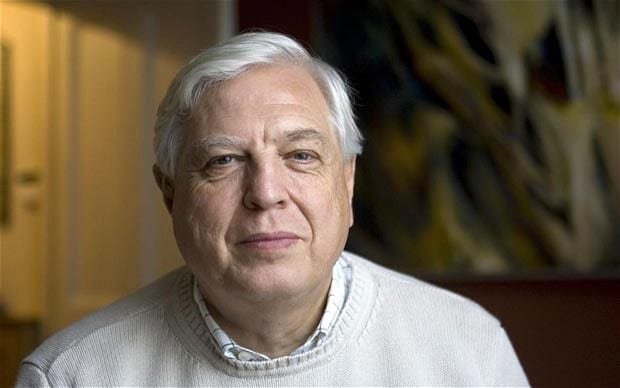Few names in the field of journalism command the same level of respect and admiration as John Simpson. With a career spanning decades, Simpson has become a symbol of truth, courage, and dedication to storytelling. His contributions to the world of media are not only marked by his professional excellence but also by his deep commitment to uncovering the human stories behind global events.
In this in-depth look at his life, we explore John Simpson age, career journey, early beginnings, personal insights, and achievements that have defined his remarkable legacy.
Early Life and Background
John Cody Fidler-Simpson was born on August 9, 1944, in London, England. His childhood coincided with the aftermath of World War II, a time that shaped his early worldview and curiosity about the changing world. He grew up with a strong sense of curiosity and an innate desire to understand global affairs qualities that would later define his career in journalism.
Simpson attended St Paul’s School, one of London’s most prestigious educational institutions, before going on to study English at Magdalene College, Cambridge. During his time at university, he honed his skills as a writer and developed an interest in international politics and storytelling. His academic background in English literature helped him build the articulate and precise communication style that became his trademark on television.
Age and Personal Life
As of 2025, John Simpson is 81 years old, yet his vitality and passion for journalism remain undiminished. Over the years, he has traveled to more than 120 countries, often reporting from conflict zones and politically unstable regions.
Despite the demands of his profession, Simpson has maintained a relatively private personal life. He has been married twice and is the father of two daughters. His family has often been a grounding force amidst the intensity of his work, offering balance to his high-risk assignments across the globe.
Career Beginnings at the BBC
Simpson joined the BBC in 1966 as a trainee sub-editor for BBC Radio News. This early stage of his career was marked by determination and an eagerness to prove himself. He quickly moved through the ranks, demonstrating his exceptional understanding of political and international issues.
By the early 1970s, Simpson had become BBC’s political editor, reporting from Westminster and covering key moments in British political history. However, it was his transition into international reporting that truly set him apart.
Rise to Fame A Global Correspondent
In the late 1970s and early 1980s, John Simpson began to cover stories from around the world, bringing viewers closer to the realities of war, revolution, and diplomacy. His courage in covering dangerous assignments earned him a reputation as one of the most fearless journalists of his generation.
Among his early notable works was his coverage of the Iranian Revolution in 1979, where he reported from Tehran during the overthrow of the Shah and the rise of Ayatollah Khomeini. His vivid storytelling and analytical insight gave audiences a clearer picture of the complex political dynamics at play.
Simpson’s reputation as a foreign correspondent continued to grow through his coverage of events such as:
- The Gulf War (1991)
- The Bosnian conflict (1992–1995)
- The Afghanistan and Iraq wars in the early 2000s
- The fall of apartheid in South Africa
His ability to report fearlessly from frontlines made him a familiar face on British television, and his work became synonymous with integrity and truth-seeking journalism.
Major Career Milestones
John Simpson’s career is filled with landmark achievements that highlight his skill, bravery, and influence in journalism. Below are some of the most significant milestones in his journey:
- 1. The Fall of Kabul (2001)
One of Simpson’s most memorable moments came during the U.S.-led invasion of Afghanistan in 2001. He famously entered Kabul disguised in a burqa alongside Northern Alliance forces as they advanced into the city. This daring move allowed him to broadcast one of the first live reports from the newly liberated Afghan capital a report that remains one of the most iconic moments in war correspondence.
- 2. Award-Winning Journalism
Simpson’s work has earned him numerous awards, including the BAFTA Fellowship, Royal Television Society Awards, and International Emmy Awards. These honors recognize his decades of contribution to global journalism and his dedication to ethical reporting.
- 3. Coverage of the Tiananmen Square Protests
In 1989, Simpson covered the Tiananmen Square protests in Beijing, providing in-depth analysis of the student-led movement and the tragic aftermath of the government’s crackdown. His reporting was widely praised for its sensitivity and depth.
- 4. Chief World Affairs Editor of the BBC
In 1988, Simpson was appointed as the BBC’s World Affairs Editor, a role he continues to hold. This position allowed him to lead the network’s international coverage and mentor a new generation of correspondents.
- 5. Author and Documentary Maker
Beyond broadcasting, Simpson is also a prolific author. He has written over 15 books, including autobiographies, political commentaries, and novels. Titles like “A Mad World, My Masters”, “Strange Places, Questionable People”, and “Days from a Different World” offer readers a personal glimpse into his adventures and reflections on global events.
Simpson’s Philosophy on Journalism
At the heart of John Simpson’s career is a strong ethical code and an unshakable belief in the power of truthful storytelling. He has consistently advocated for independent journalism, free from political and corporate influence.
Simpson believes that journalists have a moral duty to inform the public and to give voice to those who are often unheard in mainstream narratives. His work is characterized by empathy, curiosity, and an unwavering commitment to accuracy.
In his interviews and writings, he often emphasizes that journalism should speak truth to power a phrase that encapsulates his lifelong pursuit of honesty and accountability in media.
Challenges and Near-Death Experiences
Over his long and eventful career, John Simpson has faced numerous dangers. He has survived bombings, shootings, and ambushes while reporting from active war zones.
In one harrowing incident during the 2003 Iraq War, a U.S. friendly fire attack killed several members of his reporting team and left Simpson injured. Despite the trauma, he continued reporting from the field a testament to his resilience and dedication.
These experiences have shaped his worldview, leading him to often reflect on the human cost of war and the importance of compassionate storytelling. Rather than focusing solely on politics or strategy, Simpson has always strived to show the personal side of conflict the lives of civilians caught in the crossfire.
Writing Career and Published Works
In addition to his broadcasting success, Simpson is an accomplished author and journalist in print. His memoirs and travelogues combine historical analysis with vivid personal anecdotes, offering readers a front-row seat to world events.
Some of his best-known books include:
- Strange Places, Questionable People (1998)
- A Mad World, My Masters (2000)
- Days from a Different World (2005)
- We Chose to Speak of War and Strife (2016)
- Moscow, Midnight (2018)
These works not only chronicle his adventures but also provide deep reflections on politics, human behavior, and journalism itself. His writing is known for its clarity, intelligence, and wit qualities that mirror his on-screen presence.

Legacy and Impact
John Simpson’s impact on journalism extends beyond his impressive résumé. He has inspired generations of reporters and viewers alike with his fearlessness, intellect, and empathy. His reports have helped shape public understanding of major global events for over half a century.
As the world of journalism continues to evolve with technology, Simpson remains a symbol of old-school integrity, reminding younger journalists of the importance of truth and courage in reporting. He has often spoken about the need for balance between speed and accuracy in the digital age urging news organizations to prioritize credibility over sensationalism.
Humanitarian Contributions and Advocacy
In addition to his professional achievements, John Simpson has used his platform to advocate for press freedom, human rights, and global awareness. He has worked with organizations that support journalists working in dangerous environments and has been an outspoken critic of censorship and propaganda.
Simpson’s belief that “the truth is worth risking everything for” continues to inspire countless individuals within and beyond the media industry.
Conclusion
John Simpson’s biography is not just a record of one man’s career it is a reflection of journalism at its finest. From his early days at the BBC to his legendary reports from war zones, Simpson has consistently exemplified courage, compassion, and professionalism.
At over eighty years old, he remains active, writing, speaking, and occasionally reporting, continuing to prove that curiosity and integrity have no expiration date. His story reminds us that great journalism is more than a job it is a calling, a lifelong pursuit of truth, and a service to humanity.







